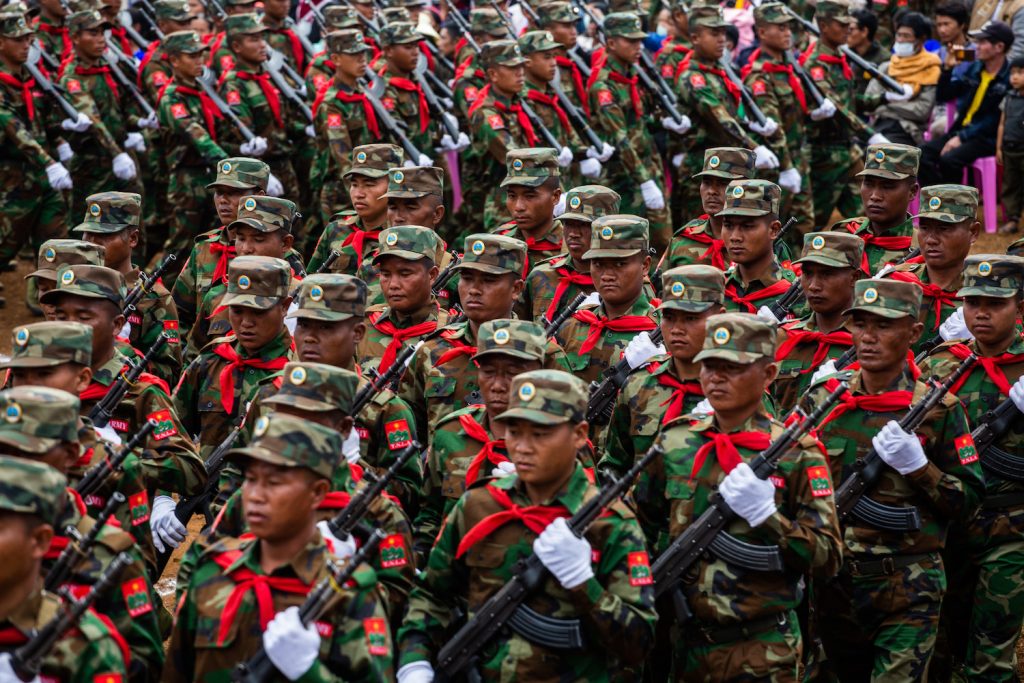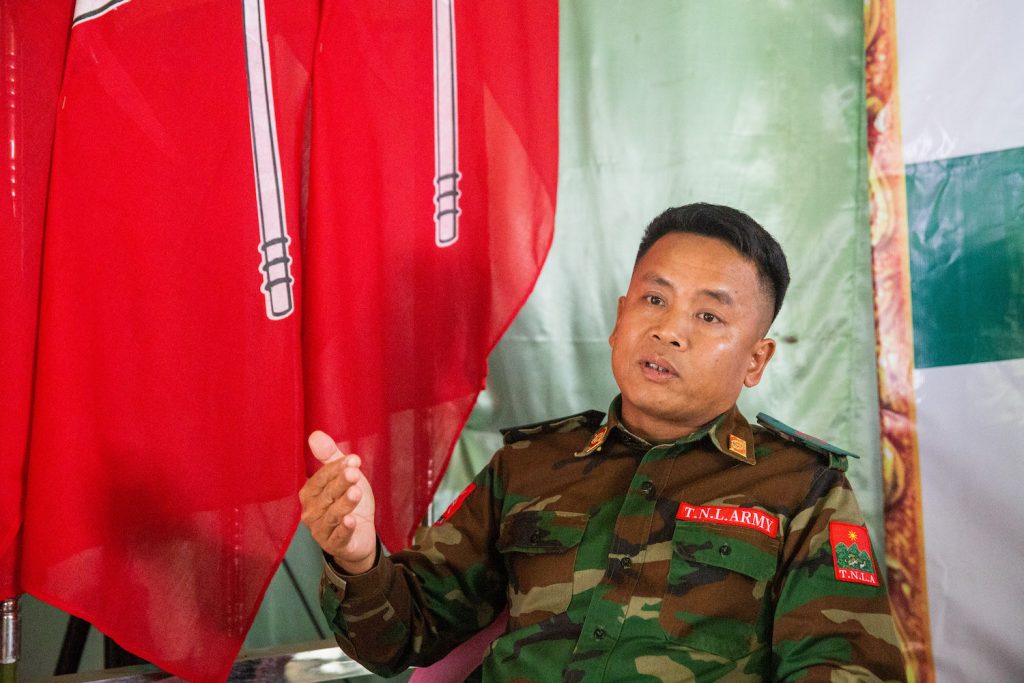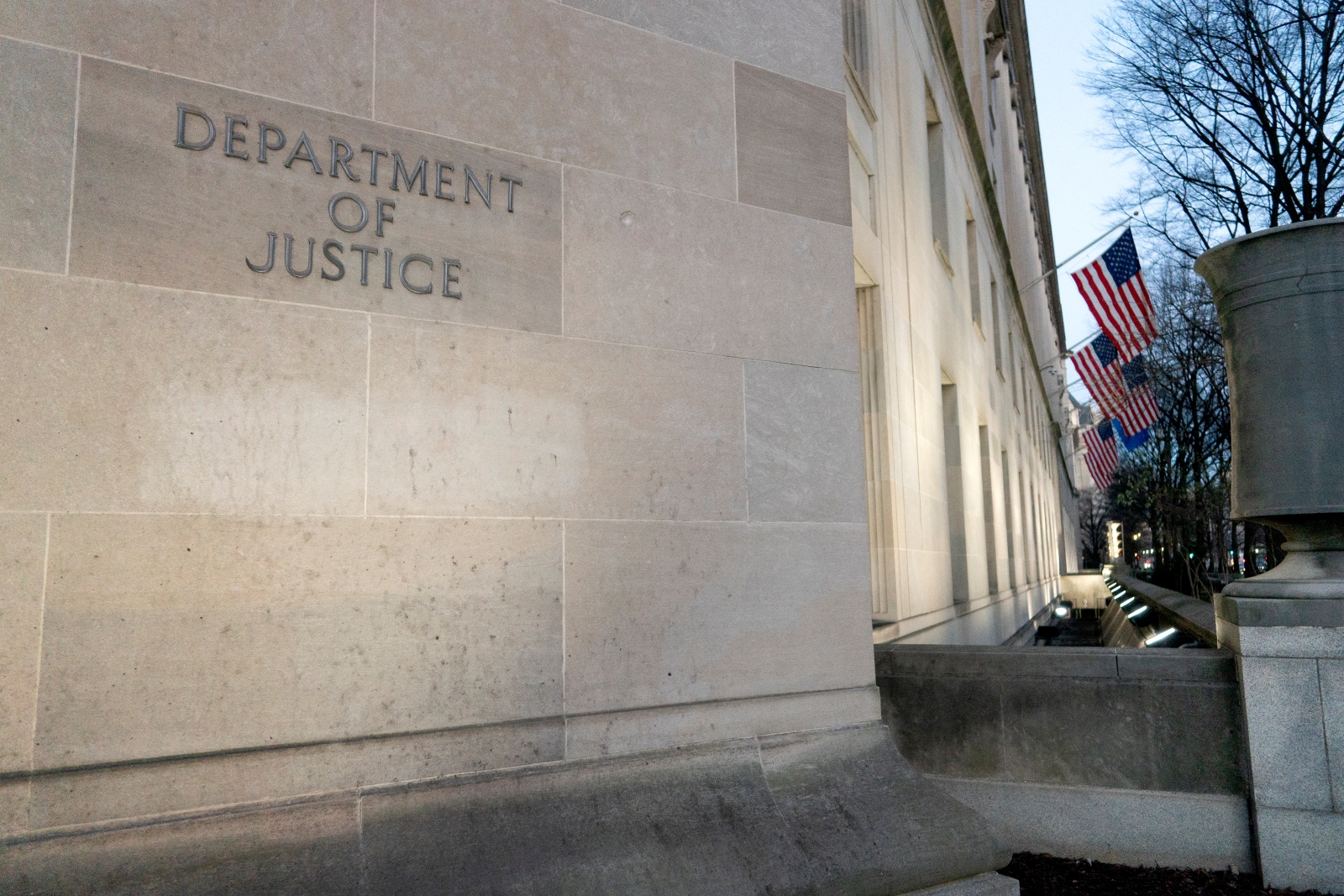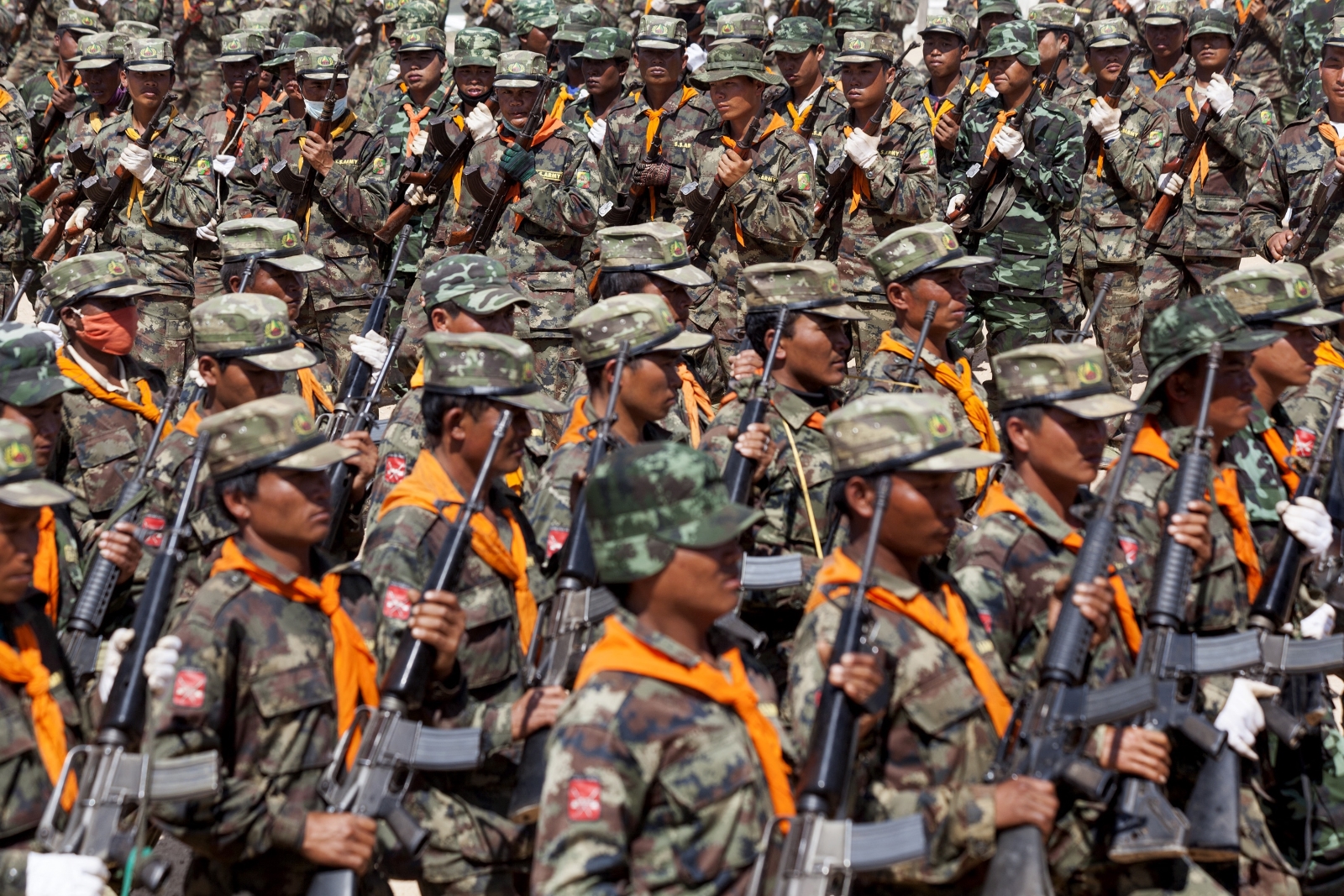The Ta’ang National Liberation Army has been fighting with the military for more than a decade. General Secretary Tar Bhone Kyaw sits down with Frontier to discuss the group’s position on the military coup, the resistance movement and its conflict with the Restoration Council of Shan State.
By FRONTIER
Earlier this year, Frontier covered the 59th anniversary of the Ta’ang National Revolution Day, hosted by the Ta’ang National Liberation Army and its political wing, the Palaung State Liberation Front. Afterwards, Frontier met with Tar Bhone Kyaw, the General Secretary of the PSLF/TNLA. Although cagey on some aspects of the TNLA activities, and what they are and aren’t doing, he made it clear the TNLA is committed to overthrowing the dictatorship.
The military seized power on February 1, 2021. How does the PSLF/TNLA view this incident?
The coup took place against the will of the people of the whole country. I don’t think it should have happened. Now all the people’s rights are being taken away. The economy, education and the health system of the country are ruined. After the coup, the people wanted democracy. They wanted to develop the country. So, they did peaceful protests. I think the Spring Revolution is a real mass movement.
Does the TNLA support the Spring Revolution that emerged in opposition to the coup?
PSLF/TNLA is a people-based revolutionary organisation for our ethnic group’s liberation. We are fighting for our Ta’ang people’s liberation. This Spring Revolution is a mass movement. The Spring Revolution also emerged for the liberation of the people. Our lives and their lives are the same. So, they are our revolution partners.
What role does the TNLA play in the Spring Revolution?
During the peaceful protests of the Spring Revolution, our organisation was not able to participate directly due to various restrictions. We were not allowed to express our views. We were in contact with people who were involved in the strikes in Yangon, Mandalay and our region. We always encouraged them. We also discussed how we can make this revolution successful. PSLF/TNLA have many restrictions to join Spring Revolution publicly like other ethnic armed organisations. But we understand that the combination of a mass movement and armed insurgency is important to overthrowing the military dictatorship.
[Bhone Kyaw declined to provide information about the restrictions the TNLA is facing.]
In 2021, the military seized power. Since then, the TNLA has been fighting the Restoration Council of Shan State (RCSS). Why?
The fight with the RCSS is a battle we do not want at all. We do not want to fight, but we cannot avoid it. We want peace and development in our region. We want to solve the political problem. However, the RCSS invaded our territory with the help of the Burmese Army after signing the Nationwide Ceasefire Agreement in 2015. They set up camp in our area and then the RCSS arrested and tortured our people. They took our people by force to serve their troops and committed many human rights violations.
So, we need to fight them. Clashes with the RCSS have occurred in 2016, 2017, 2018 and 2019. Finally, in 2021, we pushed to clear the RCSS from our area on the western side of the Nawnghkio-Kyaukme-Hsipaw highway. We do not consider the RCSS to be our main enemy. We have no desire to eradicate them completely. We just asked the RCSS to leave the area. If they stay in these areas, we cannot focus on our revolutionary work. For example, if we fought with the Myanmar military, the RCSS would move into our buffer zone. So, we had to use military methods to solve the RCSS problem. Now that the RCSS troops have moved to the eastern side of the highway, there is no need to fight anymore.
The Ta’ang Political Consultative Committee (TPCC) joined the National Unity Consultative Council. How is the PSLF/TNLA involved in the TPCC?
The TPCC is a political advisory body for the Ta’ang people. We understand Ta’ang civil society organisations and political organisations are involved in TPCC. Our TNLA is not directly involved in the TPCC, but we regularly exchange information about what the TPCC is doing. And also, we have discussions and negotiations with TPCC. So, we accept and agree with the actions of the TPCC.
What does the TNLA discuss with TPCC?
We, the Ta’ang people, are on the path to overthrowing the current dictatorship. We always give them tips to help them reach their goals faster. At present, our armed group is not able to participate directly due to various reasons. But the TPCC represents us. We can say that TPCC has our voice.

How important is it for the TNLA to overthrow the military dictatorship?
The ultimate goal of the PSLF/TNLA is to achieve the Ta’ang State, self-determination, democracy and human rights. These will not be obtained as long as there is a dictatorship. So, to achieve our ultimate goal, it is really important to completely overthrow the dictatorship.
Can the goal of a federal union, as ethnic leaders have always demanded, emerge from this Spring Revolution?
We see that Generation Z, which has taken a leadership role in the Spring Revolution, have come to understand the political problem in Burma. They will understand how to build a true federal democracy without future coups in Burma. We can work together with them for important things on the union level.
Will the TNLA be more directly involved in the Spring Revolution in the future? Or Will the TNLA go against the military in your own way?
The current National Unity Government-led part of the Spring Revolution, including People’s Defence Forces and other armed resistance groups, are important to today’s revolutionary landscape. Not only TNLA but also the Northern Alliance and Brotherhood Alliance understand that these are important movements for the revolution. However, due to various circumstances and various political restrictions, we are not able to participate as openly as other organisations. But the TNLA supports this movement. We understand the situation very well. Everyone is responsible for this revolution’s success. During the filming, not only actors are involved. There are also people involved behind the scenes. We need to work strategically, depending on the needs of the revolution. Everyone has a responsibility to make this revolution a success.
What would the TNLA need to see in order to partner with the NUG?
After the NUG and NUCC were founded, they drafted federal charters to decide political reforms. I think these are good steps. If the leaders of the NUG, NUCC and EAOs can reach common ground on these charters, we can work together in the future. If we want to build a true federal democratic union, we need to pass these steps.
What is the attitude of the TNLA towards the military’s peace offers?
The military leaders give various opportunities to EAOs to cooperate with them. But we know that these offers are dishonest based on many years of experience. We are not waging an armed uprising just for the sake of our business opportunities. We really want our region to develop. So, taking advantage of that opportunity from military generals will not lead to lasting peace and stability. Development is not possible. I hope all EAOs understand what should be done in this situation.
Will there be peace talks with the military in the future?
We know the best way to find a solution to any political problem is through dialogue. However, after the coup, the military continued to crack down and kill innocent civilians across the whole country. If they are committing a series of war crimes, political dialogue with the pro-democracy forces and EAOs will remain very difficult.
The military council used armed force to seize political power and control over the economy of the country. The army led by Min Aung Hlaing has been fighting in our ethnic areas for years. They killed civilians and burned houses in our ethnic regions, similar to what’s happening now in Sagaing Region. This is the true sign of dictatorship. As a result, all the people of the whole country hate the Burmese Army. The door to national reconciliation with the Burmese military can be said to be closed.
How long will this armed uprising last?
The NUG, Generation Z, PDFs and armed resistance leaders have done a lot for the armed uprising in just over a year. They built their own weapons. They revolted by cutting off the existing budget because they hated the dictatorship. It can be said that the armed uprising of these PDFs is quite gratifying. How long it will take and when it will succeed depends on how EAO leaders and Spring Revolution leaders can work together.
What would you like to add as a leader of the ethnic armed groups about the current Spring Revolution?
Now the oppression is great. The armed uprising is getting bigger and the losses for the people are greater. But people should not get depressed about this. They need to intensify their resistance and find a better way to win. If EAO leaders and leaders from the Spring Revolution cannot overthrow this military dictatorship, our future generation and our country will fall into the hands of the dictator. I think we all have a responsibility not to let that happen.







